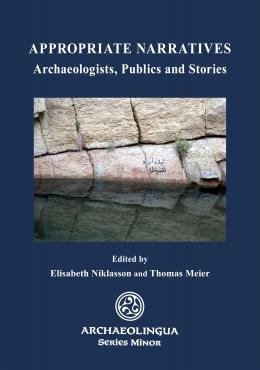Appropriate narratives

Appropriate narratives
| 7 608 Ft |
| Price |
Series Minor No. 33
Budapest, Archaeolingua, 2013
Puhakötés | Paper book, 23.5 × 16.5 cm
300 oldal, színes és fekete-fehér illusztrációkkal | 300 pages with colored and grayscale images
ISBN 978 963 9911 47 5
Table of contents // Tartalomjegyzék
Description
How do different publics receive and transform archaeologists’ stories? Archaeologists frequently – and often disappointingly – realise that their academic results are heavily “misunderstood” and transformed when their stories enter public discourse, even if they themselves have simplified their stories before handing them over to the visitor, listener or reader.
The eleven authors of this book regard such public receptions of archaeological narratives as productive transformations in their own right and reject an old fashioned notion of academic knowledge versus the misunderstood and deteriorated narratives of “the villagers”. The paternalistic guidance of the public towards the academically sanctioned truth, as endorsed by modernity, has meant that these appropriations have consistently been disregarded and deemed useless. However, if we view such public transformations of archaeological knowledge as attempts to make archaeologists’ results meaningful outside the academic sphere, they become vital for archaeologists to understand their own place in wider society. More specifically, such analysis of what is received on different levels and how archaeological narratives are transformed, will enhance archaeologists’ ability to meet requirements of different publics and relate to their preconceptions of both archaeologists and objects.
| |
|
|
1067 Budapest, Teréz krt. 13. |
|
|
|
|
About us
The Archaeolingua Foundation and Publisher is involved in publishing series and standalone publications in the disciplines of archaeology, linguistics, historic sciences and heritage protection for over 25 years.
Learn more
Publishing
We publish both as standalone editions and as a volume of a professional series.
Learn more
Contact us
Archaeolingua Foundation

